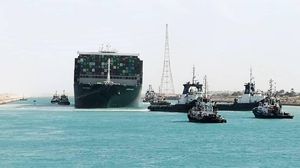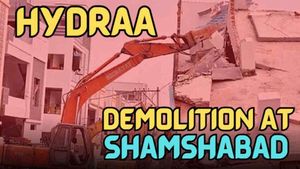The recent escalation of violence in eastern Democratic Republic of Congo (DRC) has drawn international attention, following the Rwandan-backed M23 rebel group's swift capture of Goma, the region's largest city. The conflict, which has already resulted in over 900 deaths and thousands of injuries, raises serious concerns about humanitarian crises and regional stability.
According to reports from CNN, Rwandan President Paul Kagame stated during an exclusive interview, "I don’t know" when asked if Rwandan troops were operating within DRC. Despite being the commander-in-chief of the Rwandan Defence Force, Kagame's ambiguous response has only fueled suspicions and accusations from the international community. With estimates from UN experts indicating the presence of 3,000 to 4,000 Rwandan soldiers supporting M23 forces, many are questioning Rwanda's role and intentions.
The Congolese government has been vocally accusing Rwanda of exacerbation of the conflict. Communications Minister Patrick Muyaya asserted, "Kagame is the only voice denying this," as Congolese officials documented evidence of Rwandan military presence. The M23 rebels, who assert they have not received support from Rwanda, claim the accusations are merely manipulations of public opinion aimed at discrediting them. Their spokesperson, Victor Tesongo, emphasized, "We receive no support from Rwanda."
The fighting has not only resulted in significant casualties but has also driven over 400,000 individuals from their homes, compounding the already dire humanitarian crisis. Goma's capital, previously brimming with life, is now on the brink of collapse amid mounting violence and infrastructure damage. Concerns over public health are also rising, with Jean Kaseya, head of the Africa CDC, warning, "If decisive action is not taken, it will not be bullets alone... it will be the unchecked spread of major outbreaks and potential pandemics." This statement highlights the dangers of outbreaks such as the deadly mpox virus, which have emerged from the chaos.
Burundian President Evariste Ndayishimiye warned on Saturday of the conflict's potential to escalate beyond DRC’s borders, threatening regional stability. "If it continues like this, war risks becoming widespread in the region," he said, mentioning the potential involvement of neighboring countries like Tanzania and Uganda.
The M23's rapid offensive through North Kivu has raised fears of cascading conflicts. They are not just aiming to consolidate control over Goma; they have also expressed intentions to push on to the DRC capital, Kinshasa. The group, primarily composed of members from the Tutsi ethnic group, has leveraged their military capabilities against Congolese forces, overpowering them due to their superior training and armament.
Public sentiment within affected areas like South Kivu is fraught with anxiety. Local residents, such as market seller Henriette Butuna, voiced their fears, stating, "This is where we are scared, because we don't know either the day or the hour they could arrive." Coupled with supply shortages and rising prices, the climate of fear is palpable. It's clear the urgency for humanitarian aid is mounting as markets remain vulnerable to looting and resource shortages.
The international community has condemned Rwanda's military involvement, highlighting the need for immediate diplomatic and humanitarian intervention. The U.N. and South African Development Committee (SADC) have deployed peacekeeping forces to help stabilize the situation, but many argue more must be done to curtail Rwandan support for the M23 to restore order.
Despite the volatility, some local markets began to open as traders struggled to return to some semblance of normalcy. Vendors have reported serious shortages of cash and fuel, exacerbated by authorities' reluctance to supply areas under M23 control. Nonetheless, there are signs of resilience among those affected, as people seek to stock up on essentials.
Calls for international support have intensified, as humanitarian organizations, including the World Food Programme (WFP), warn of impending food and water shortages. Spokesperson Shelley Thakral emphasized the immediate need for coordinated efforts to prevent widespread hunger and disease as infrastructure continues to disintegrate.
Given the reality of this crisis, experts and global leaders advocate for urgent international action to mitigate the impact of the violence. With the conflict already marking over three decades of suffering for the Congolese people, it is imperative to prioritize humanitarian relief efforts to address the dire needs on the ground.
The M23 rebellion and its support from Rwanda represent more than just local conflicts; they highlight the complex interplay of geopolitics, ethnic tensions, and the battle for control over Eastern DRC's rich mineral resources. The stakes are high, as the potential for wider regional conflict looms overhead, calling for immediate and effective responses from the international community to restore peace and protect the vulnerable civilian population.



